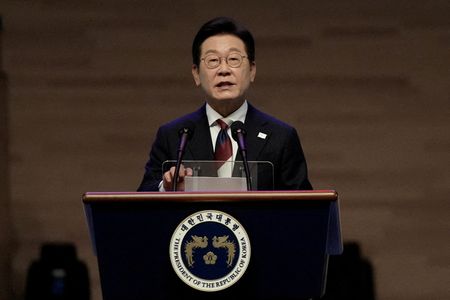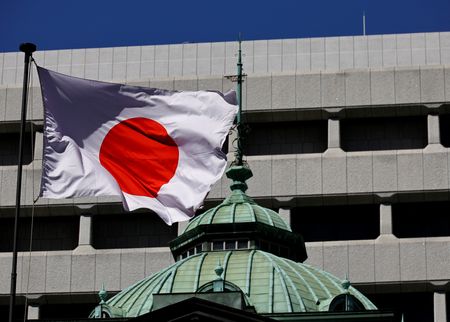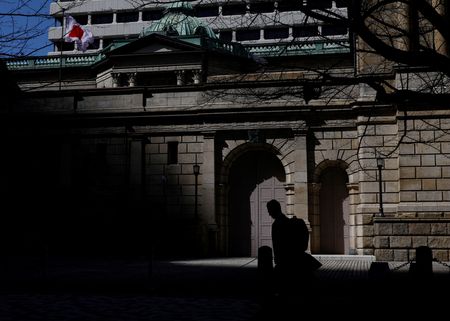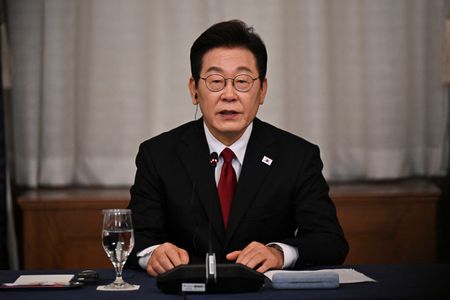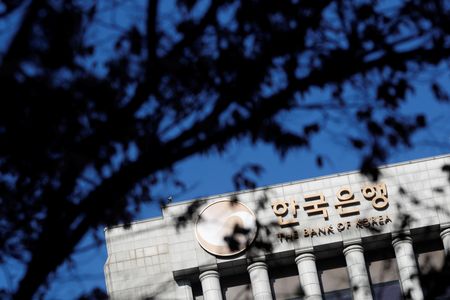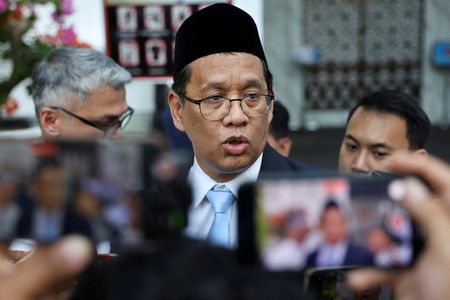By Heejin Kim and Jihoon Lee
SEOUL (Reuters) – South Korean President Lee Jae Myung said on Thursday he would not pursue plans to revise the country’s capital gains taxes on stock investments, conceding the move that was intended to boost tax revenue risked undermining the market.
Lee told a press conference he now considered it unnecessary to lower the threshold defining “large shareholders” subject to paying capital gains tax. The planned tax change had sparked a public backlash among many South Korean investors.
“If it causes damage to the stock market, I don’t think it is necessary to lower the threshold to 1 billion (won) from 5 billion,” Lee said, reaffirming the administration’s will to pursue reforms to revitalise the market.
He said he would leave the decision to parliament, currently reviewing the proposal. Both the ruling Democratic Party and the main opposition People Power Party agree that the threshold should remain unchanged.
The benchmark KOSPI stock index initially fell after Lee’s comments but rebounded soon after to trade up 0.6% at 3,333.28 points as of 0353 GMT.
Lee also vowed to respond sternly to unfair trading practices such as price manipulation, among other measures to help resolve the so-called “Korea Discount” – the undervaluation of companies compared with global peers due to factors such as opaque governance structures and low dividend payouts.
Lee floated the idea that the country’s National Pension Service – the world’s third-largest with 1,269.2 trillion won ($913 billion) in assets – should step up its investment in domestic stocks, saying he did not understand its policy of increasing overseas assets to prevent a local market impact.
“It is buying foreign stocks because there are concerns of a domestic market slump when it needs to sell two to three decades from now. It sounds reasonable, but it is 30 years from now, by when stock prices will rise,” he said, adding it would be a missed opportunity.
Lee’s administration still plans to raise the tax on stock market transactions to 0.2% from 0.15% currently, as proposed in July.
In the domestic stock market, heavy selling by retail investors near the end of each year intended to avoid the large shareholder threshold is often cited by analysts as a factor contributing to downward pressure on the benchmark index.
Major reforms passed by Lee’s administration include amending the Commercial Act to expand the duty of board members to protect shareholder interests and setting up a task force to win an upgrade to developed market status from a global index provider, with improvements to foreign access.
($1 = 1,389.7100 won)
(Reporting by Heejin Kim and Jihoon Lee; Editing by Ed Davies and Sonali Paul)

